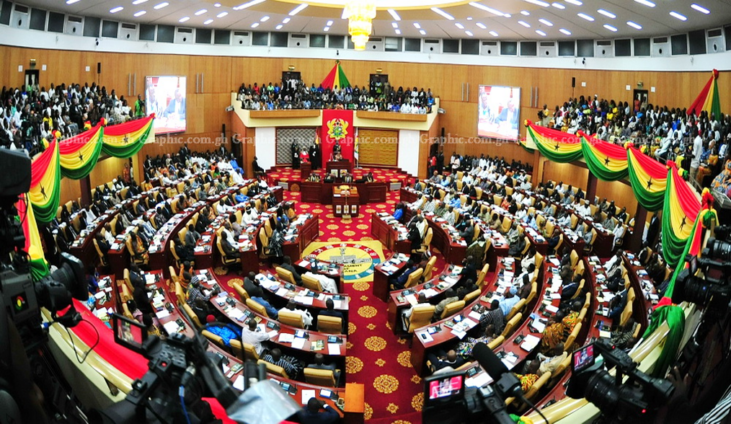As the Affirmative Action Gender Equity Bill is passed into an Act, the Affirmative Action Bill (AABill) Coalition has expressed optimism that its implementation will increase female representation in Parliament to 30 per cent by 2026.
Women’s representation in Ghana’s Parliament currently stands at 14.5 per cent, and less than five per cent in the District Assembly System. The situation is similar in terms of ministerial, ambassadorial and board appointments made by the government.
Mrs Sheila Minkah-Premo, the Convener, AABill, in an interview with the Ghana News Agency, said the Coalition was patiently waiting for the Act to be assented by the President of the Republic to fully become law and then, it would work with the Ministry of Gender, Children and Social Protection to ensure that it was fully and properly implemented.
“We are elated that the Bill has been passed because the drafting started in 2011 and went to Parliament once but wasn’t processed. The Coalition was set up in 2019 to put efforts together to have it passed and we are expecting that the Bill receives Presidential assent to become a law and then, the great step begins,” she said.
The Ministry of Gender was to set up a Gender Equity Committee to monitor and ensure that the law was working, she said, and gave an assurance that the Coalition would stop at nothing to give support to ensure that the law was implemented to bring a positive change on Ghana’s decision-making table.
“We are very hopeful that the law will work and make a difference with inclusion in line with the 1992 Constitution, Article 17 (2) which states that ‘A person shall not be discriminated against on grounds of gender, race, colour, ethnic origin, religion, creed or social or economic status.'”
Article 17 (4a) states: “Nothing in this article shall prevent Parliament from enacting laws that are reasonably necessary to provide for the implementation of policies and programmes aimed at redressing social, economic or educational imbalance in the Ghanaian society.”
“That is what we are relying on to ensure that structures are put in place to enable the law to work,” she said.
The Affirmative Action Gender Equity Law is expected to effectively address social, cultural, political and economic gender imbalances in the country, stemming from historical discrimination against women and persistent patriarchal socio-cultural systems and norms.
The Bill also aims to promote gender equity in both the public and private sectors.
Ghana first passed the Affirmative Action Act in 1960, allowing ten women to represent the country’s regions in the legislature.
The law acknowledged that women’s political participation was an essential component of democratic dialogue and special cohesion.
Women’s effective contributions to Ghana’s development are nearly impossible because of their persistent underrepresentation in key decision-making spaces.
Despite Ghana’s signing on to various international protocols and conventions, pledging 30 to 40 per cent representation of women, these figures remain extremely low.
Latest Stories
-
Driver jailed for stealing GH¢100,000 from employer
24 minutes -
NIA management appeals to striking workers to return to post as negotiations continue
58 minutes -
Gov’t sued over appointment of COP Kofi Boakye to Police Council
1 hour -
Kwame Dadzie: Why Creative Arts Federation of Ghana is a needless formation
2 hours -
ECG completes 11kV feeder to enhance power supply in Greater Kumasi
2 hours -
How KNUST helped shape Gambia’s first locally trained engineers
2 hours -
NPP invites presidential hopefuls, directs cessation of meetings with party executives
2 hours -
NPP Primaries: You can be an old guy, but if you’re incompetent, you won’t win – Asah-Asante
2 hours -
AUCB Alumni executives pay courtesy call on new Chancellor Frank Adu Jr.
2 hours -
Rugby Africa Cup returns to Kampala as 8 nations battle for World Cup glory
3 hours -
Perseus Mining Ghana announces leadership transition
3 hours -
Nuamah’s Olympique Lyon relegated to Ligue 2 over financial troubles
3 hours -
SHS students to debate Copyright Issues at 2025 Ghana Book Fair
3 hours -
Supreme Court vetting report approved despite Minority pushback
4 hours -
Ghana’s development agenda strengthened as NDPC signs MoU with KPMG
4 hours

